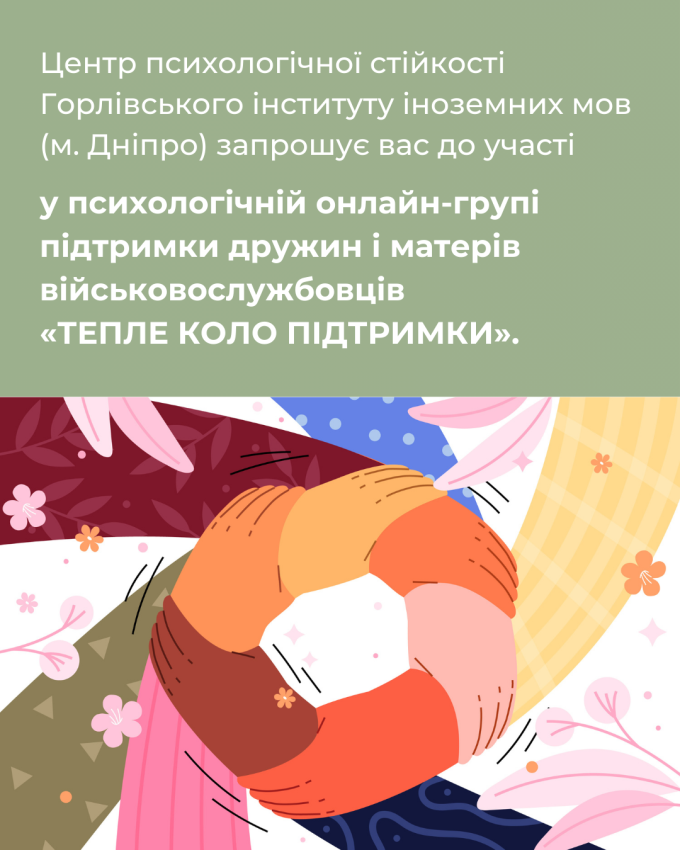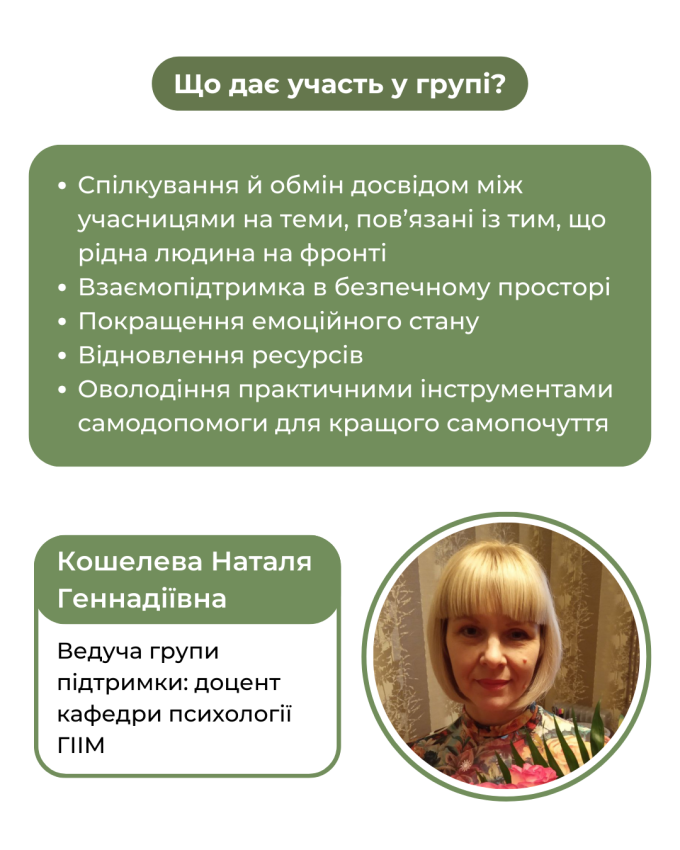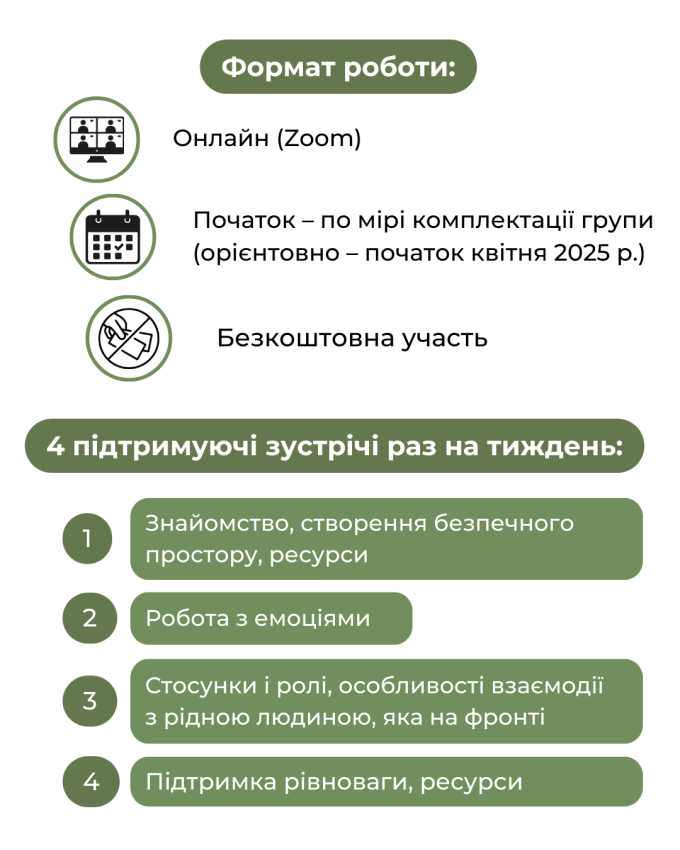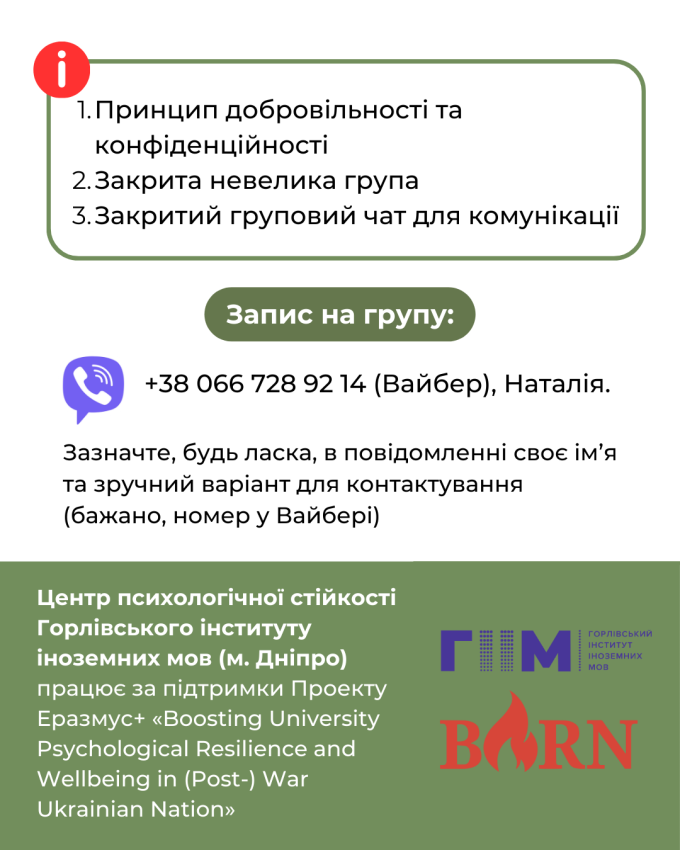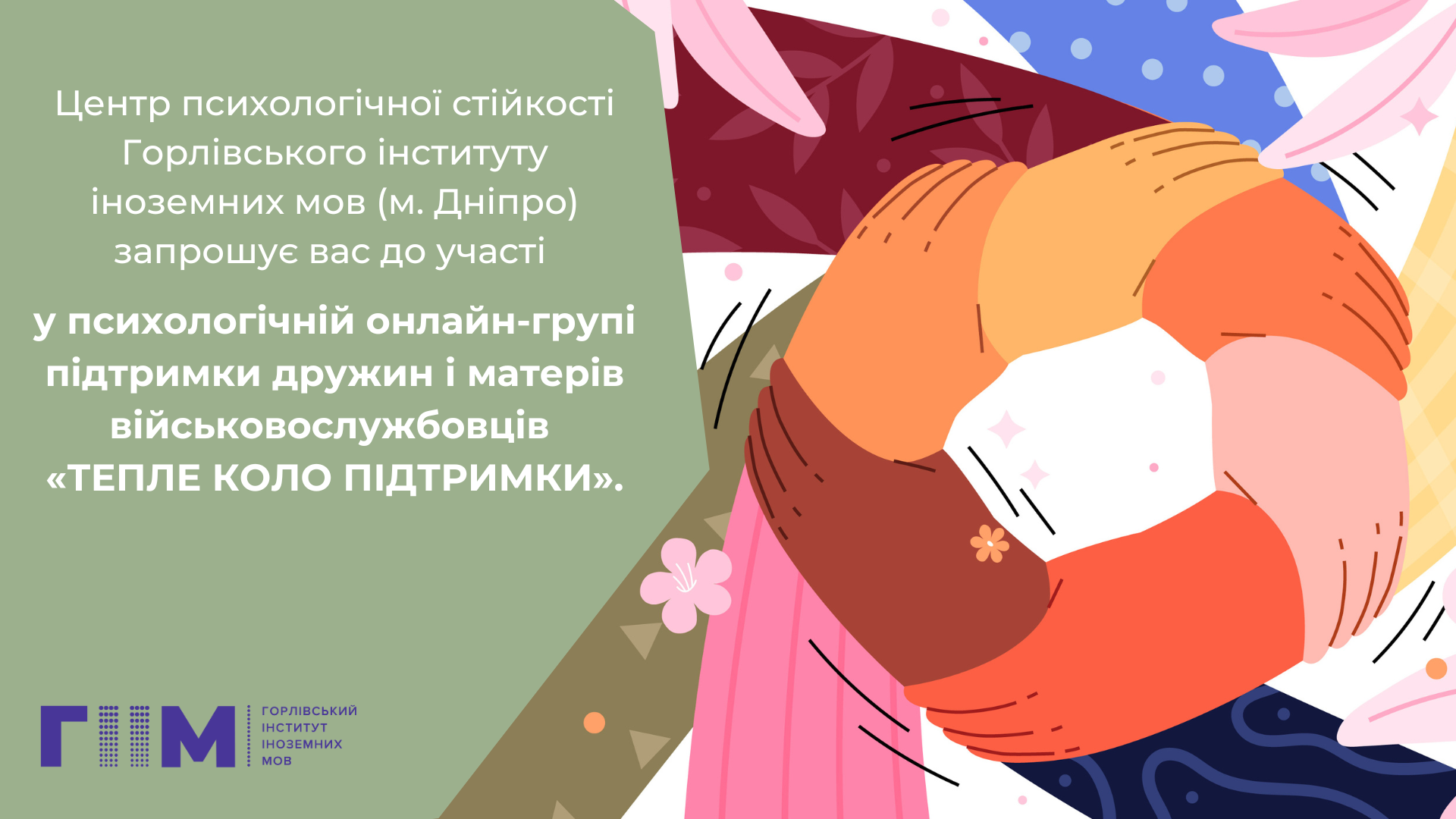Dear girls, women whose husbands, sons, brothers, and fiancés are currently defending our country!
The Center for Psychological Resilience* of the Horlivka Institute of Foreign Languages (Dnipro) invites you to participate in psychological online support group for wives and mothers of military personnel "Warm Circle of Support".
Support group leader: Associate Professor of the Department of Psychology, GIIM N.G. Kosheleva.
What does participation in a group provide?
- Communication and exchange of experiences between participants on topics related to having a loved one at the front
- Mutual support in a safe space
- Improving emotional state
- Resource recovery
- Mastering practical self-help tools for better well-being
Work format:
Online (Zoom), start – as the group is recruited (estimated – early April 2025)
Free participation
4 support meetings once a week:
- Getting to know each other, creating a safe space, resources
- Working with emotions
- Relationships and roles, features of interaction with a loved one who is at the front
- Maintaining balance, resources
The principle of voluntariness and confidentiality
Closed small group
Closed group chat for communication
Group registration: 066 728 92 14 (Viber), Natalia.
Please include your name and a convenient way to contact us (preferably a Viber number) in your message.
*The Center for Psychological Resilience of the Horlivka Institute of Foreign Languages (Dnipro) operates with the support of the Erasmus+ Project “Boosting University Psychological Resilience and Wellbeing in (Post-) War Ukrainian Nation”,
